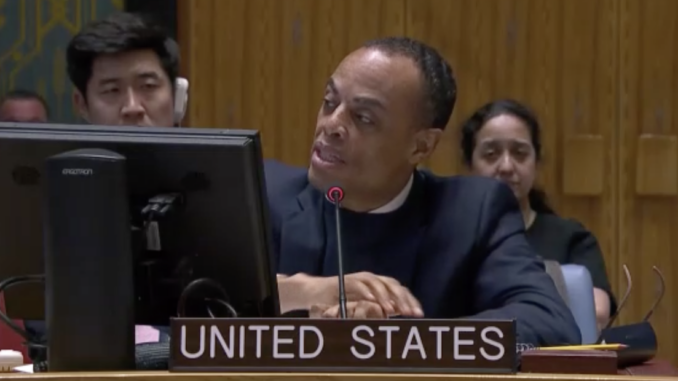
The United States has called on March 10 for increased international cooperation to address the growing links between the Somali-based terrorist group Al-Shabaab and the Houthi movement from Yemen.
Speaking on the issue, Acting U.S. Alternate Representative to the UN, Ambassador John Kelley, stressed the importance of dialogue between the Yemen and Al-Shabaab sanctions panels, along with collaboration among countries in the Horn of Africa and the Arabian Peninsula.
The aim, he said, is to shed light on these connections and ultimately sever them, highlighting the significance of the Red Sea smuggling routes that facilitate the exchange of resources between the two groups.
Kelley’s remarks followed the US’s support for a UN Security Council resolution aimed at renewing sanctions on Al-Shabaab. The resolution includes extending arms embargoes, travel bans, and asset freezes on the terrorist group. It also renews the mandate for a Panel of Experts on Somalia to monitor Al-Shabaab’s financial activities and report back to the UN Security Council. According to Kelley, these measures are crucial in restricting the group’s access to funds and weapons, which are essential for their continued attacks and for fuelling conflict in Somalia.
Ambassador Kelley also reiterated the need for additional measures to target Al-Shabaab operatives and further diminish the group’s influence. Al-Shabaab has been responsible for numerous terrorist attacks across Somalia, including bombings, assassinations, and ambushes. The group extorts millions of dollars from local businesses and residents, exacerbating Somalia’s instability. Kelley called for regional dialogue to tackle related issues like piracy, weapons trafficking, and illicit activities, stressing that the international community must hold those responsible for undermining peace and security accountable. The United States remains committed to addressing the threats posed by Al-Shabaab and other terrorist organisations globally.
